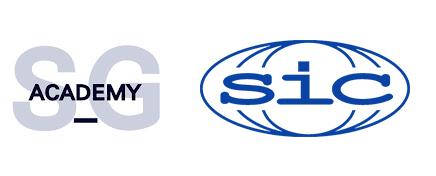Internal Auditor of Fraud Control Management Systems (ISO 37003, ISO 19011)
Participants will gain insight into the key components of an FCMS, including: organizational context, fraud risk management, policies and procedures, leadership, documentation, fraud indicators, response measures, and continual improvement. Special emphasis is placed on the role of internal auditors in planning, conducting, and documenting audits, preparing reports, and monitoring corrective actions. Case studies and sample documents will enable participants to apply theoretical knowledge in practice. The training content is divided into modules, ensuring a structured and effective learning process.
Duration
36 hours
Language
English/Ukrainian
Format
100% online
Course objective
The aim of the course “Internal Auditor of Fraud Control Management Systems (ISO 37003, ISO 19011)” is to provide knowledge and practical skills for performing effective internal audits. The course combines the ISO 37003:2025 guidance on developing and assessing fraud control systems with the ISO 19011:2018 requirements for audit planning, execution, reporting, and follow-up.
Participants will work with standard provisions, case studies, document samples, and practical tools that enhance system effectiveness and reinforce a culture of integrity within the organization. They will acquire hands-on skills to conduct internal audits as a key mechanism for system improvement.
Learning Outcomes
- Understand the purpose and content of ISO 37003 as a framework for systematic fraud prevention, detection, and response.
- Differentiate between internal, external, and organizational fraud risks, and assess their impact on the company.
- Conduct internal reviews: prepare interview questions, analyze documents, and identify fraud indicators.
- Apply risk-based and evidence-based approaches to audit planning and execution.
- Plan and conduct internal audits in line with ISO 19011 requirements, tailored to the FCMS.
- Prepare audit reports, identify nonconformities, and initiate corrective actions to strengthen the system.
Target audience
- external auditors of management system certification bodies;
- lead auditors who are involved in certification, surveillance, and recertification audits;
- candidates for external auditors who are undergoing training or qualification to work within certification bodies;
- auditors involved in integrated and combined management system audits.
The course is aimed at professionals who have basic knowledge of management system standards and perform independent, impartial assessments of organizations.
Document on completion
Upon completion, participants will receive an Internal Auditor of FCMS Certificate, registered in the International SIC Register.
Thematic plan
The course program includes 2 modules:
Module I — Fraud Control Management System (ISO 37003)
Module II — Internal Audit (ISO 19011)
Duration (approx.): 36 hours
Objectives
Module 1 Compliance management systems (ISO 37301)
| Module I — Fraud Control Management System (ISO 37003) | ||
| # | Content | hours |
| 1 |
Introduction
|
1 |
| 2 |
Organizational Context as a Fundamental Basis of the SSM
|
2 |
| 3 |
Leadership is the driving force of the system
|
1 |
| 4 |
Risk-Based Planning
|
2 |
| 5 |
Support — SMPSH resource base
|
2 |
| 6 |
Operational activities – practical mechanisms for combating fraud
|
6 |
| 8 |
Performance review – does the system really work?
|
2 |
| 9 |
System Improvement – Anti-Fraud Culture
|
1 |
| 10 | Testing | 1 |
| Module II — Internal Audit (ISO 19011) | ||
| # | Content | hours |
| 1 |
Classification and objectives of an audit
|
3 |
| 2 |
Audit terminology and principles
|
4 |
| 3 |
Audit Program Management
|
3 |
| 4 |
Audit Conduction and Reporting
|
4 |
| 5 |
Competence and personal qualities of an auditor
|
2 |
| 6 | Testing | 1 |
| 7 | Case review | 1 |
